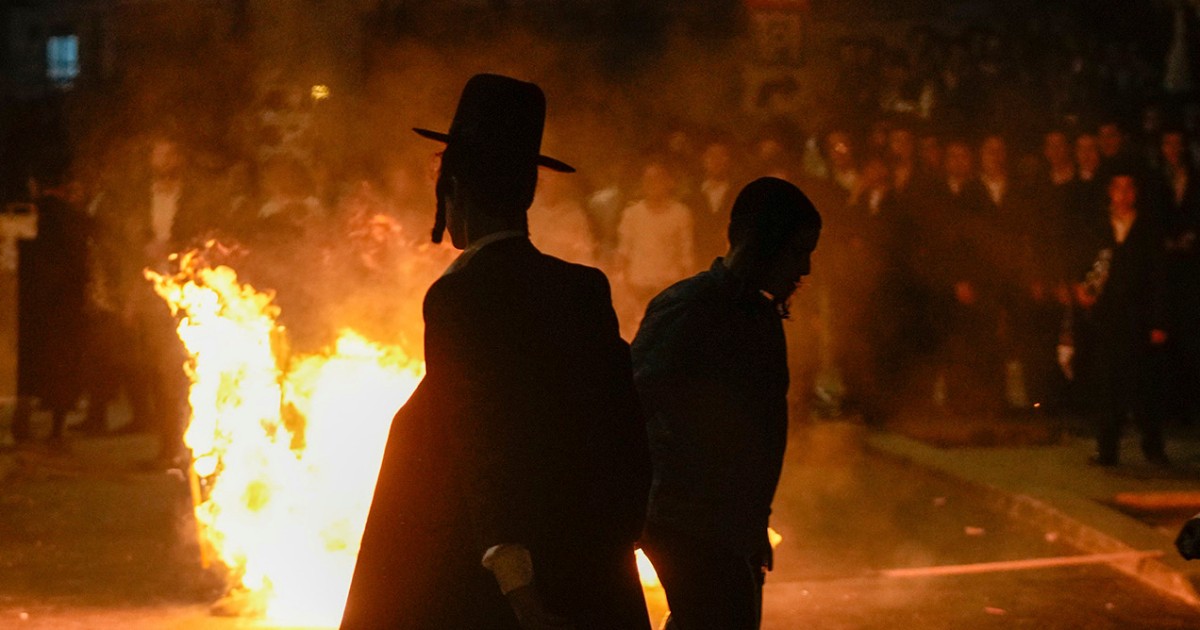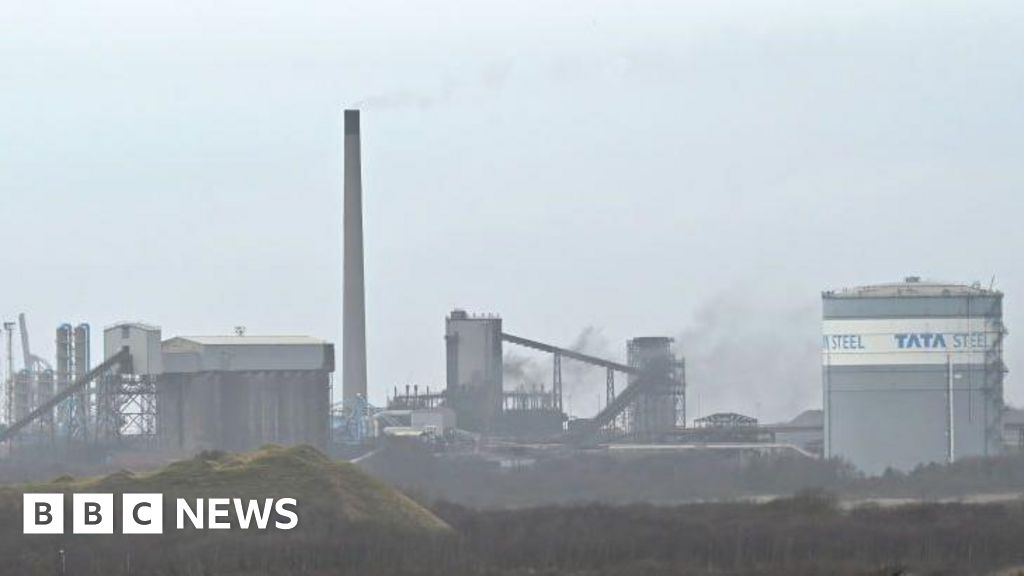 Science & Environment
Science & Environment
In Egypt, Gaza evacuees live in the shadows: ‘Everything…
While several thousand sick and wounded have been treated in Egyptian hospitals, the vast majority of evacuees came with the help of foreign embassies or via Hala Consulting and Tourism — an Egyptian company reportedly linked to state security services that charges a hefty “coordination” fee to help Palestinians escape.
Once in Egypt, nonmedical evacuees have largely been left to fend for themselves. Tens of thousands have illegally overstayed their 45-day tourist visas, making them ineligible for public education, health care and other services.
The U.N. agency responsible for Palestinian refugees doesn’t cover those in Egypt. And the United Nations’ broader refugee agency said it can’t help new arrivals because Cairo doesn’t recognize its mandate for Palestinians.
A spokesman for Egypt’s foreign press center declined to comment. Egyptian officials have previously denied government involvement with Hala and said they do not condone charging Palestinians seeking to leave Gaza.
Washington Post reporters visited displaced Gazans at their homes and workplaces around Cairo, where they have found sanctuary and a measure of calm, but are unable to build a future.
Papers are everything for Palestinians, determining where they can live, work, travel and obtain services.
For a 42-year-old mother of six daughters, who had moved to Gaza when she married, her Jordanian passport may have been the difference between life and death.
In December, after the family endured a harrowing journey to southern Gaza, the woman received a call. Her name was on the list to evacuate to Egypt, the Jordanian official said. Her daughters’ names were not.
The woman spoke to The Post on the condition of anonymity because she was not authorized by her employer to speak publicly.
Jordanian women cannot pass their nationality down to their children; all six of the woman’s daughters hold only Palestinian passports, severely limiting where they can go. At the Rafah border crossing, she pleaded with Egyptian officials to let her daughters through. After hours of waiting, customs agents ushered them across.
Her husband, who works in a hospital, stayed behind.
The woman spent her first month in Cairo trying to secure permission to travel to Jordan. But the country already hosts more than 2 million Palestinian refugees and won’t accept those fleeing this war.
“We are stuck here in Egypt,” she said.
The woman took her daughters to Alexandria for the spring, hoping the sight of the sea would ease their homesickness. Without Egyptian residency, she has been unable to find stable work.
In May, the family moved to a quiet desert suburb an hour from downtown Cairo. Her younger daughters, barred from enrolling in Egyptian schools, have tuned in virtually to classrooms in Ramallah, through a program set up by the Palestinian Authority’s embassy.
But the girls missed months of instruction because of the war and are struggling to catch up. Math, once the favorite subject of Batoul, 15, has become a source of frustration.
“The people here are so kind to us. When they know that we are from Palestine, specifically from Gaza, sometimes they won’t let us pay” for coffee, taxis, treats, Batoul said. But it’s a “new life — it’s hard.”
Her mother is trying to help the girls adjust.
“We are very connected to [Egyptians], and we love them,” she said. “But they need to do much, much more.”
On a recent Monday evening, El-Khozondar falafel restaurant was packed with Gazans looking for a taste of home. Waiters carried trays piled with salads, falafel and fatteh — a Palestinian dish of pita bread, chickpeas and meat.
Majid El-Khozondar, 60, began planning to open a Cairo branch of his famous restaurant chain even before he left Gaza, while sheltering with his children and grandchildren in tents over the winter. They had been displaced several times and were nearly killed in an Israeli airstrike.
All three of his restaurants in Gaza were destroyed by the fighting — as was the five-story house he had built with his life savings in 2021. But the family — and brand — had survived war and displacement before: Majid’s grandfather, who founded the flagship falafel shop in Jaffa, opened the first branch in Gaza after he was expelled during the creation of Israel in 1948, an event Palestinians call the Nakba, or “catastrophe.”
After paying $25,000 to Hala, Majid crossed the border to Egypt with two of his sons, their wives and a young grandchild in February. Another son and his Egyptian wife had already left Gaza.
He opened the falafel shop in Nasr City, the eastern Cairo neighborhood where many Gazans have ended up.
Most of his customers and staff are displaced Palestinians, for whom the restaurant has become a community center.
“Some people come here just to meet up. Some people spend too much time at a table — it’s a problem for business,” he said with a rueful smile.
Majid sends his earnings to the rest of his family trapped in Gaza. He still hopes he can bring them to safety. But eventually, he said, he’d like to return home.
“I love Egypt. … I used to spend half the year in Egypt,” he said. “But I can’t replace Palestine.”
Mosab Abu Toha, 31, knows he is one of the lucky ones. His stature as a poet — he holds an MFA from Syracuse University and won an American Book Award last year — meant the global literati rallied to his aid when he was detained by the Israel Defense Forces as he tried to flee northern Gaza with his young family in November.
Two weeks after his release, they were able to cross into Egypt — a departure aided by his son Mostafa’s U.S. citizenship. Abu Toha, wife Maram and children Yazzan, 8, Yaffa, 7, and Mostafa, 4, stayed with friends before moving into an airy apartment provided by the American University in Cairo — part of Abu Toha’s writing residency there in the spring.
Abu Toha taught a poetry course and savored the quiet space to write. His next collection is to be published on Oct. 29 — almost a year to the day since an Israeli airstrike destroyed his home. He calls it a response to the loss of his library.
“Poetry for me is a poetry of witness,” Abu Toha said, holding a copy of his first collection, the one book he brought with him from Gaza.
The children made Egyptian friends. Yazzan, a quiet boy with dark hair, stopped asking whether his uncles and aunts back in Gaza are still alive. On an afternoon in early June, Yaffa sang a French song she had learned at the private international school where the children were enrolled. But Mostafa, the redhead, still wakes up in the middle of the night, crying and pointing at something his parents cannot see.
Even with support from friends and the university, life in Egypt hasn’t been easy, Abu Toha said. He hasn’t been able to get residency. The private school cost nearly $6,000. Applying for visas to travel abroad was a nightmare.
“Whenever you talk to people here in Egypt, they talk about loving Gazans. When it comes to bureaucracy, you are nothing, you are alien,” he said.
His inability to protect his father and siblings still in Gaza — even with his international contacts — haunted him, Abu Toha said.
Unable to stay in Egypt, the family is headed back to Syracuse, where Abu Toha secured a professorship. He plans to give readings of his upcoming book in the United States.
“The role of poetry is to document the suffering and the misery of the human experience,” he said, in the hope it “will not be repeated.”
Mohammad Sabbah, 44, felt suffocated in Gaza well before the war.
After 2007, when Hamas took over the strip, “life in Gaza was not a life,” he said. Electricity was sporadic, poverty was rampant, freedoms were limited.
Sabbah worked as a researcher for B’Tselem, an Israeli human rights organization, for nearly two decades. He rushed to the scenes of Israeli airstrikes in previous wars to document civilian deaths, and shined a light on abuses under Hamas, which arrested him in 2012.
He’d thought about leaving Gaza before, but family ties and a commitment to his work — “my baby,” he called it — kept him there.
But after the Hamas-led attacks on Oct. 7, he said, Israeli forces “want blood, they want revenge, they want to teach people a lesson.”
As Israeli troops began to wind down ground operations in central Gaza in February, Sabbah knew that Rafah, where he was sheltering with his wife and four children, would be next.
With help from a cousin in Egypt, he paid $22,500 to register his family with Hala in early March. He spent his last night in Gaza with his 82-year-old mother, a diabetic with breathing difficulties.
“She wasn’t happy I was leaving,” he said.
With a few clothes, some olive oil and an electric bread oven, the family crossed into Egypt in April. Their bus dropped them off in Nasr City, and Sabbah took his wife and children to the residential quarters of the Palestine Hospital. He didn’t know where else to go.
Through word of mouth, he soon found an apartment. Rent in Egypt is expensive, he said; landlords “see us like a bag of money.”
In June, Sabbah learned via WhatsApp that his mother had died, having fallen ill when she was displaced by Israel’s invasion of Rafah. He hasn’t been able to get in touch with his siblings since.
In Gaza, “we lived through an emergency situation,” Sabbah said. It still feels like that in Egypt.
“Everything is closing in on us.”
Heba Farouk Mahfouz in Cairo contributed to this report.










